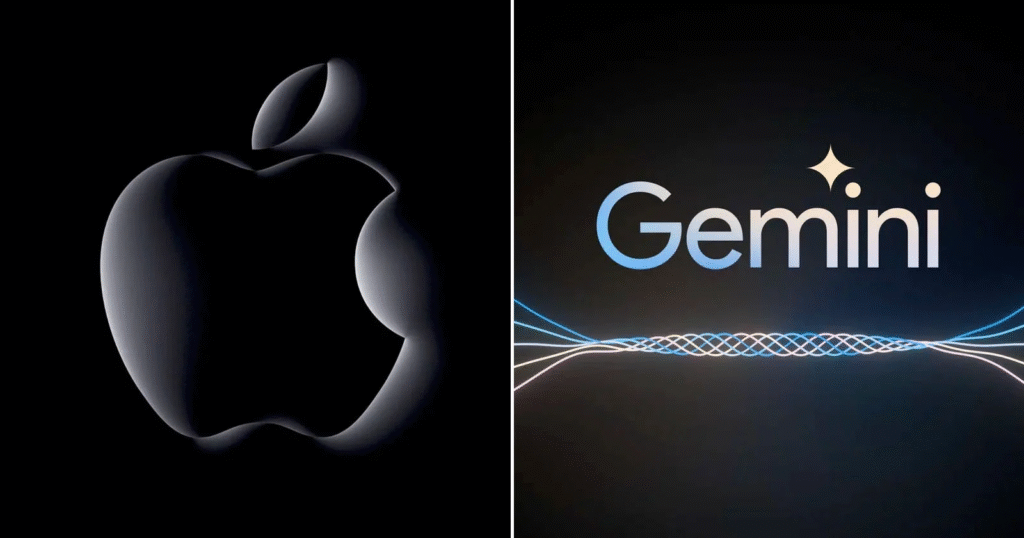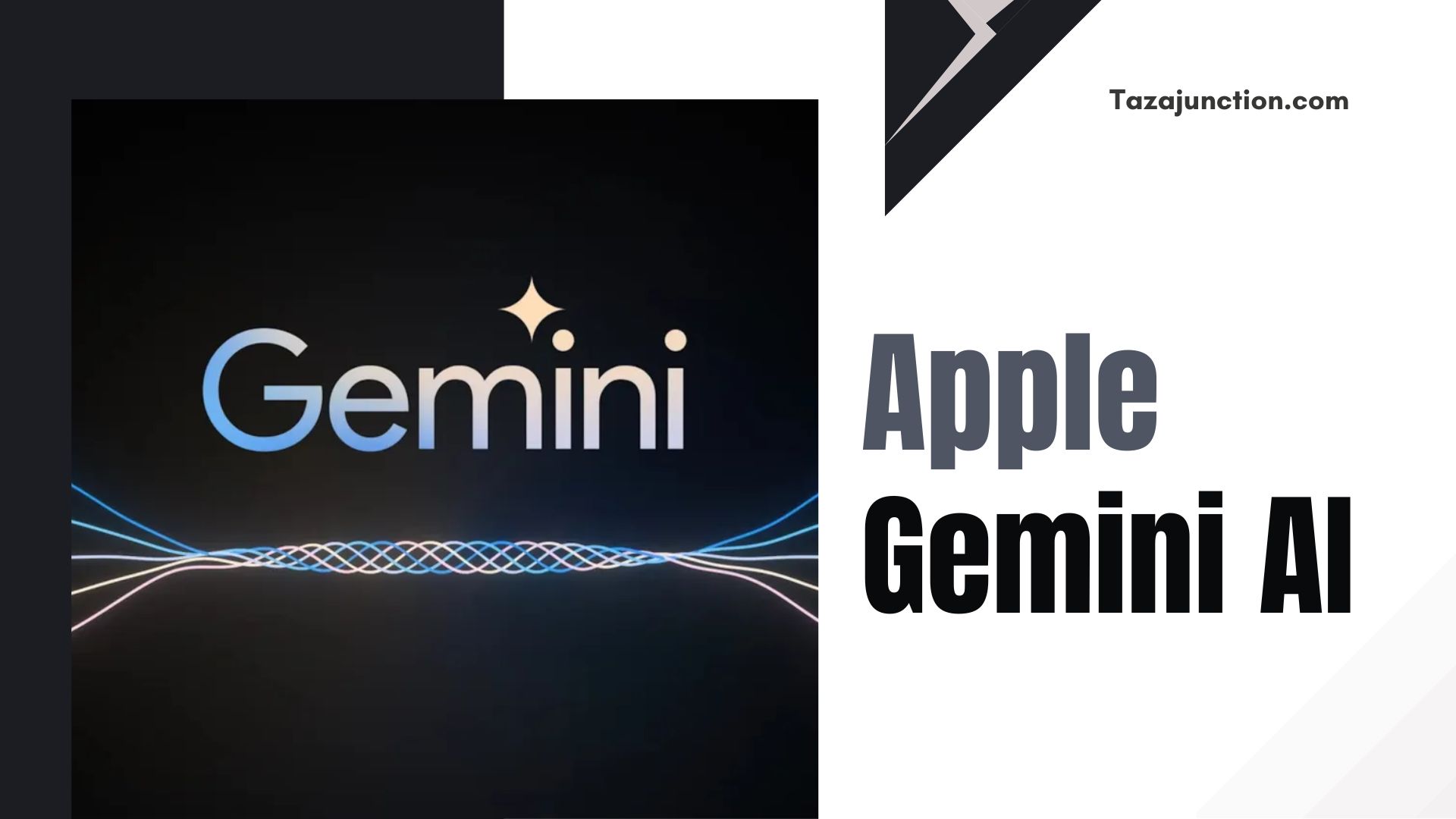In a move that could significantly reshape the future of voice assistants and on-device AI, Apple is reportedly in serious talks with Google to integrate Gemini, Google’s advanced artificial intelligence model, into Siri.
According to internal sources, an ongoing “bake off” is underway to evaluate the performance of multiple AI models, including OpenAI and Google’s Gemini.
If successful, this could mark the beginning of a new era of intelligent, intuitive, and far more capable interactions between users and their Apple devices — all powered by what’s being dubbed the Apple Gemini AI project.
While Apple has traditionally focused on in-house development, especially when it comes to core features like Siri, these discussions indicate a shift in strategy. The company seems willing to consider external partnerships to rapidly catch up in the AI arms race.
As user expectations for smart assistants evolve, Apple’s ambition is clear: to make Siri smarter, faster, and more useful in everyday scenarios. The key? A potential fusion with Gemini.
Table of Contents
Why Is Apple Considering Google’s Gemini?
Siri, once a trailblazer in voice-activated virtual assistants, has lagged behind competitors like Google Assistant, Amazon Alexa, and ChatGPT. Despite several updates, Siri has struggled with contextual understanding, fluid conversation, and advanced task execution — all of which are increasingly expected by users in 2025 and beyond.
Enter Google Gemini — a multimodal, next-gen large language model designed to outperform GPT-based systems in several tasks, including text comprehension, coding, reasoning, and even voice interaction.
Reports suggest that Apple sees strong potential in what Apple Gemini AI could offer, particularly as it prepares to launch more AI-forward features across iOS, iPadOS, and macOS.
The discussions between Apple and Google represent more than just licensing a model; they reflect a strategic evaluation of how Apple can close the gap in AI capabilities, possibly without having to rebuild the entire architecture from scratch.
What Does the ‘Bake Off’ Mean?
According to insiders, Apple’s internal AI team is currently conducting a rigorous comparative testing process referred to as a “bake off.” In this phase, Apple engineers are evaluating different AI models — most notably OpenAI’s ChatGPT and Google’s Gemini — across various real-world use cases and device performance requirements.
The Apple Gemini AI tests are said to focus on several key aspects:
- Accuracy in Conversational Tasks
- Speed and Latency on Apple Devices
- Energy Efficiency and Battery Usage
- Multilingual Support and Context Retention
- Integration Flexibility with iOS and Siri
This bake off is a crucial step. Apple is known for maintaining a tightly controlled ecosystem, and any third-party AI integration must pass rigorous standards for privacy, performance, and seamless operation.
While Apple reportedly continues to develop its own in-house models, the inclusion of Gemini in this testing process signals that the company is seriously considering a dual-model approach for its future Siri framework — essentially creating what many insiders now call the Apple Gemini AI initiative.
What Could Gemini Bring to Siri?

The integration of Google’s Gemini into Apple’s voice assistant stack could redefine what Siri is capable of. Currently, Siri excels at basic tasks — setting reminders, opening apps, or providing weather updates. However, when it comes to complex queries or multi-step tasks, it often falls short.
With Apple Gemini AI, Siri could evolve into a much more sophisticated assistant:
- Contextual Awareness: Understanding conversations across multiple queries without losing track.
- Multimodal Input: Processing voice, images, and even on-screen content simultaneously.
- Natural Language Flow: Engaging in back-and-forth conversations without sounding robotic.
- Smarter App Control: Interacting deeply with third-party apps, beyond basic shortcuts.
- Learning User Preferences: Adapting over time to how each user speaks, behaves, and interacts.
This level of functionality would bring Siri closer to the capabilities demonstrated by leading LLM-powered assistants and would support Apple’s broader AI ambitions across devices.
Privacy Concerns and Apple’s Approach
Privacy has always been a cornerstone of Apple’s brand identity. Any integration involving third-party AI like Gemini raises important questions: How much user data will be shared? Will AI processing happen on-device or in the cloud? And how can Apple maintain control over the user experience?
The Apple Gemini AI approach is expected to follow a hybrid model. Basic queries could be handled entirely on-device using Apple’s own AI infrastructure, ensuring speed and privacy. More complex queries might be routed to Gemini’s cloud-based systems — but only after user consent and anonymization protocols are applied.
Apple’s track record in privacy-focused engineering suggests that, if Gemini is integrated, it will happen within clear boundaries designed to protect user data. This could also serve as a unique selling point: offering the power of Gemini with Apple’s renowned privacy safeguards.
Competitive Implications
The potential integration of Gemini has implications far beyond Siri. If successful, Apple Gemini AI could set a new standard for how AI is embedded into consumer technology. It would also give Apple a stronger position against rivals in both hardware and software ecosystems.
Here’s how:
- Versus Google: Ironically, Apple would be using Google’s own AI to potentially offer a better assistant on its devices than Android.
- Versus Microsoft: While Microsoft is heavily invested in OpenAI, Apple could position its AI tools as more personal, private, and tightly integrated.
- Versus Amazon: Alexa’s market share has dipped, and a smarter Siri could gain ground in smart home environments.
- Versus OpenAI: By testing both Gemini and ChatGPT, Apple is in a unique position to choose the model that performs best — or offer users a choice.
This is not just about Siri. Apple Gemini AI could influence Spotlight search, dictation, accessibility tools, and even how Apple devices communicate with each other using AI-powered suggestions and automation.
Timing and Product Rollout
If talks progress and testing continues smoothly, the Apple Gemini AI features could begin appearing in late 2026, possibly debuting in iOS 20 and macOS 16. Apple may also introduce it through a staged rollout — starting with developer betas, expanding to new devices, and later integrating across the entire product ecosystem.
Initial use cases might focus on improving Siri’s intelligence and interaction quality. Over time, the model could be used to enhance Apple’s productivity apps, like Mail, Notes, and Calendar, and even integrate into services like Apple Music and Apple TV+ through smarter content recommendations and voice interaction.
Industry Reaction
The industry response has been cautiously optimistic. Analysts recognize that Apple needs to respond to the rapidly evolving AI landscape but are also watching closely to see how the company preserves its brand values.
A successful Apple Gemini AI launch could not only restore Siri’s reputation but also redefine expectations for voice assistants entirely.
Some experts speculate that Apple might even offer Gemini-powered Siri as an optional feature — allowing users to toggle between different AI engines based on their preferences. Others see it as a precursor to even more advanced Apple hardware, like AI-focused AirPods or a Siri-powered HomePod with Gemini intelligence.
Final Thoughts
The reports of Apple’s collaboration with Google for a possible Apple Gemini AI integration signal a pivotal moment in the company’s AI journey.
By considering external partnerships without compromising its own principles, Apple appears to be taking a pragmatic approach to catching up — and potentially surpassing — the AI capabilities of its competitors.
If this partnership comes to fruition, users can expect a smarter, more natural, and far more useful Siri experience. The era of voice assistants just doing simple tasks may be over.
With Apple Gemini AI, the assistant of the future could be context-aware, emotionally intelligent, and deeply integrated into every part of your digital life.
Whether this “bake off” leads to a long-term partnership or simply informs Apple’s own internal AI evolution, one thing is clear: Apple is betting big on making Siri relevant again — and Apple Gemini AI could be the brainpower behind that transformation.

